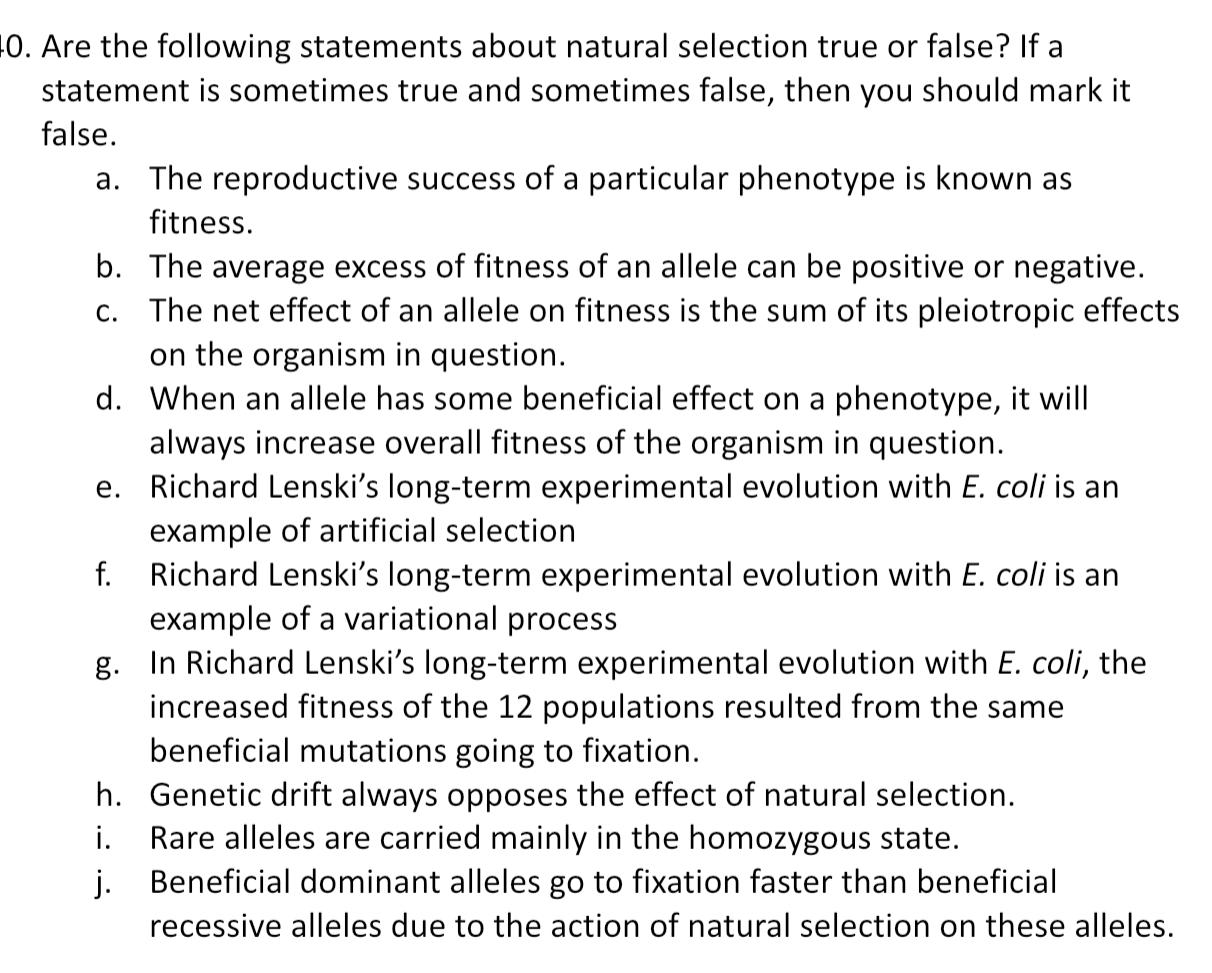Home /
Expert Answers /
Biology /
are-the-following-statements-about-natural-selection-true-or-false-if-a-statement-is-sometimes-tr-pa809
(Solved): Are the following statements about natural selection true or false? If a statement is sometimes tr ...
Are the following statements about natural selection true or false? If a statement is sometimes true and sometimes false, then you should mark it false. a. The reproductive success of a particular phenotype is known as fitness. b. The average excess of fitness of an allele can be positive or negative. c. The net effect of an allele on fitness is the sum of its pleiotropic effects on the organism in question. d. When an allele has some beneficial effect on a phenotype, it will always increase overall fitness of the organism in question. e. Richard Lenski's long-term experimental evolution with E. coli is an example of artificial selection f. Richard Lenski's long-term experimental evolution with E. coli is an example of a variational process g. In Richard Lenski's long-term experimental evolution with E. coli, the increased fitness of the 12 populations resulted from the same beneficial mutations going to fixation. h. Genetic drift always opposes the effect of natural selection. i. Rare alleles are carried mainly in the homozygous state. j. Beneficial dominant alleles go to fixation faster than beneficial recessive alleles due to the action of natural selection on these alleles.
Expert Answer
A. The reproductive success of a particular phenotype is known as fitness - True. Fitness is a measure of relative reproductive success. It refers to
